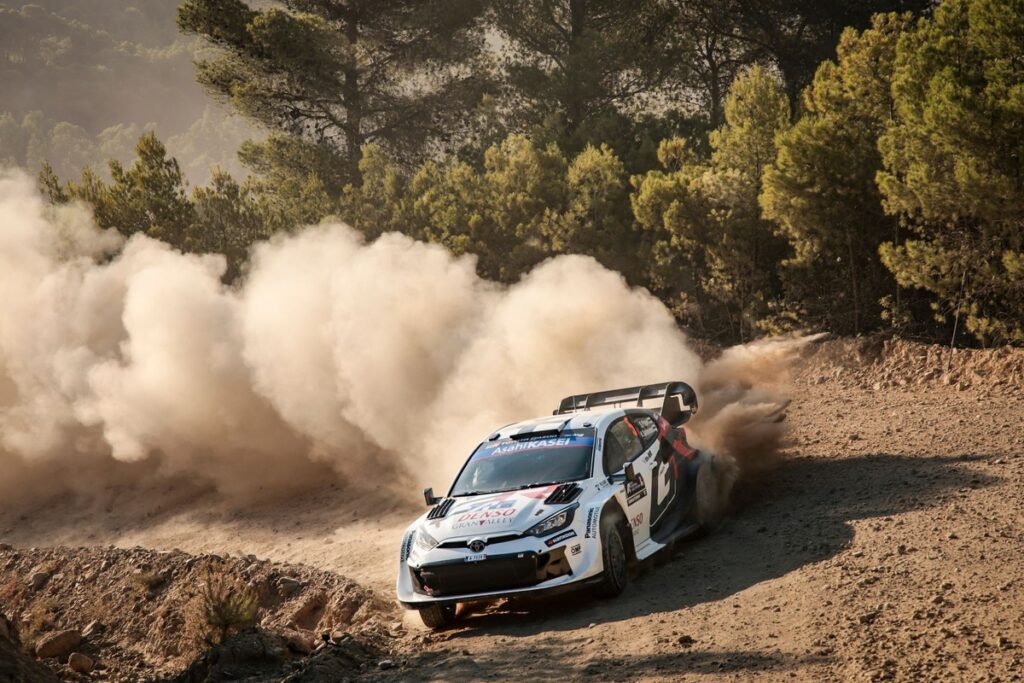World Rally Championship Rally1 teams will be permitted to make changes to their cars to prevent a repeat of the fuel system issues that occurred at Acropolis Rally Greece.
Rally1 teams were forced to monitor problems with the fuel systems of their cars that ultimately forced Toyota and M-Sport-Ford to retire cars driven by Sami Pajari, Martins Sesks and Gregoire Munster from the rough gravel rally last month.
It is unclear what exactly caused the fuel system issues, although it is widely believed that the extreme heat experienced in Greece, with cockpit temperatures reaching as high as 70C on Friday, acted as a catalyst for the problems.
The fuel system-related retirements arrived in what is the fourth event since the WRC changed to a new sustainable fuel supplier after P1 Racing Fuels went into administration earlier this year. The FIA quickly moved to appoint TotalEnergies as the WRC’s fuel supplier, with the French supplier beginning its tenure from Rally Islas Canarias in April.
The FIA investigated the problems encountered by Rally1 teams in Greece, which prompted a series of meetings between the teams and the FIA’s technical department. It is understood that there is no issue with the fuel and the supplier will remain in place for the remainder of the season.
Martins Sesks, Renars Francis, M-Sport Ford World Rally Team Ford Puma Rally1
Photo by: M-Sport
However, in order to prevent the possibility of these problems re-occurring at other rallies, Autosport understands Rally1 teams will be permitted to fit different fuel tanks to their cars ahead of this week’s Rally Estonia. The fuel tank is a homologated part of the car but in this instance, changes will not require the use of a homologation joker.
“Since being made aware of an issue affecting the fuel tanks on certain Rally1 cars during Acropolis Rally Greece, the FIA is following developments closely,” said a spokesperson from the FIA.
“There will be no change to the fuel supply for the 2025 season. It is the responsibility of each manufacturer to ensure that the fuel tank used fully complies with the FIA homologation requirements and is properly adapted to the fuel mandated for use in the championship.
“The FIA has supported the manufacturers by facilitating discussions with suppliers and by updating regulations to ensure flexibility for teams, allowing them to make any necessary modifications in response to the challenges they are facing as of the Estonia round without affecting their homologation jokers.
“The timing of the previous supplier going into administration has unavoidably affected the normal testing processes manufacturers would undertake whenever fuel specification is changed, which is most likely the reason for the issues experienced by the Rally1 cars in the extreme temperatures of Acropolis Rally Greece.”
In this article
Be the first to know and subscribe for real-time news email updates on these topics
Subscribe to news alerts
Read the full article here

